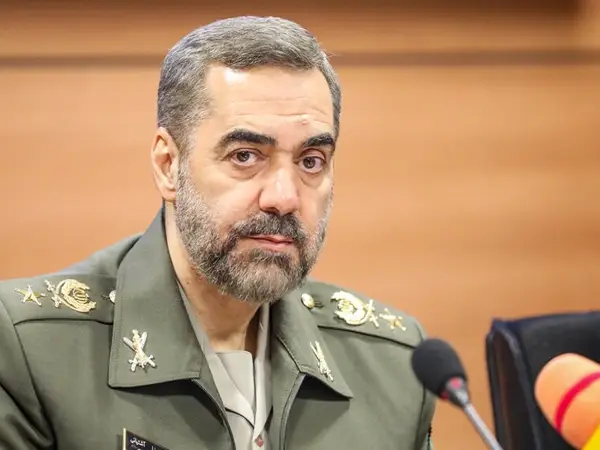Iran’s defense ministry is creating an “economic headquarters” to coordinate and marshal its capabilities for more effective business and commercial operations.
In a meeting of the ministry’s Strategic Council on Monday chaired by Defense Minister Mohammad-Reza Gharaei Ashtiani, a host of other officials were present, including directors of “ideological-political” offices, intelligence and counterintelligence, and managers of the ministry’s business subsidiaries, official government news website IRNA reported.
Iran’s defense ministry operates within the framework of the presidential administration, but the chief commander of all armed forces is Supreme Leader Ali Khamenei. The armed forces are divided to two separate armies, the Islamic Revolution Guard Corps (IRGC) and the traditional army, the Artesh. The IRGC carries tremendous political and economic power in the country, in effect controlling the traditional army.
The main tasks of the defense ministry is development of weapons and equipment for the armed forces. Most of the Islamic Republic’s homegrown military and dual-use technologies, such as drones, are developed by the ministry. This role was highlighted in the meeting of the Strategic Council, where the defense minister praised Mohsen Fakhrizadeh, the nuclear-military scientist who was assassinated near Tehran in November 2020, most likely by Israel.
The defense minister said that Fakhrizadeh was “a source of great services to the holy Islamic regime and he was able to make great strides in developing military industries.”
It is not clear what the exact plans for an economic coordination taskforce would be and the state-controlled media did not elaborate. But from the brief announcement made it seems that the defense ministry wants to marshal its capabilities to play a larger role in helping the economy in an environment of tough United States sanctions.
It is also possible that in a tough economic environment the ministry wants to establish more control over companies it controls. Various people or interest groups are benefitting from the ministry's resources, businesses and factories. Creating an economic task force could allow the leadership to channel all economic activities to benefit the ministry in a more meaningful way.
Ashtiani, mentioned the keyword “centralization” of economic activities as a necessity.
Since the early 1990s, after the end of the Iran-Iraq war, the IRGC was allowed to set up businesses and get involved in the economy. Then-president Akbar Hashemi Rafsanjani who made the decision thought that it could benefit both the country and the tens of thousands of veterans who had fought for years in the battlefield. But IRGC’s business ventures turned into a quest of building an economic empire that today dominates the country. The military force has become the biggest public works contractor in Iran, sweeping aside private businesses.
The same was emulated by the defense ministry to a lesser extent. Fakhrizadeh, who was a top defense ministry official had set up businesses, an Iran International report revealed last year after his assassination. His family indirectly respondedin an interview with the state TV in early December 2020, in which they acknowledged that he did indeed owned “knowledge-based” companies.
Occasionally, the president of the country and even Khamenei have urged to military to curtail their economic activities, but these calls have been met with IRGC’s pushback. In July 2017, President Hassan Rouhani had to retreat after speaking of a “government with guns”, referring to IRGC’s political and economic power.
On Monday, Ashtiani referred to the president and Khamenei when he said the new economic headquarters is meant to help meet their “expectations”.
He also mentioned, “Monitoring both domestic and foreign economic environment, identifying corresponding opportunities, economic policy-making,” and a host of coordinating tasks for the economic headquarters.
